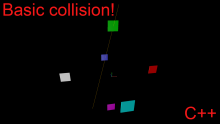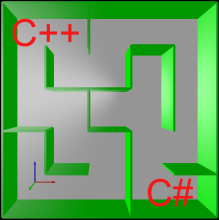c++
Projects using C++
Exploring .Net interoperability to implement Vulkan rendering in C#
The magic of quad trees (spatial partitioning)
Quad trees (or more commonly octrees or k-d trees) are ubiquitous in the world of games and are a very efficient method of spatial partitioning. They allow the application developer to organize a set of points or objects in 2D or 3D space based on their location within that space, which can then be used to retrieve that object or nearby objects. For a full description of what a quad tree is and how they work, check out the wikipedia article on them.
Metroid Clone Redux
Custom Memory Allocator: StackAllocator
When it comes to high performance software, using the built in memory allocators like new and malloc can cause performance issues due to the underlying kernel calls required to fulfill the allocation requests. Games are very much high performance software as the time spent processing frames effects the overall experience that the user has. Since the desired time between frames is usually somewhere between 1/30 and 1/60 of a second, every bit of time that can be avoided during frame processing is highly desired.
Glass The Planet
Here's a project I've been working on for a while now that I'm calling Glass The Planet. I've always enjoyed large capital class space ships in games, I don't know why but something about them has always fascinated me. I loved the Covenant super carriers in Halo, the super star destroyers in Star Wars, and I especially love being able to pilot capital ships in EVE Online. So I wanted to create a basic game that allows the player to take control over some awesome ships and go to down causing destruction on a large scale. This is what I have so far and it's coming along quite well!


